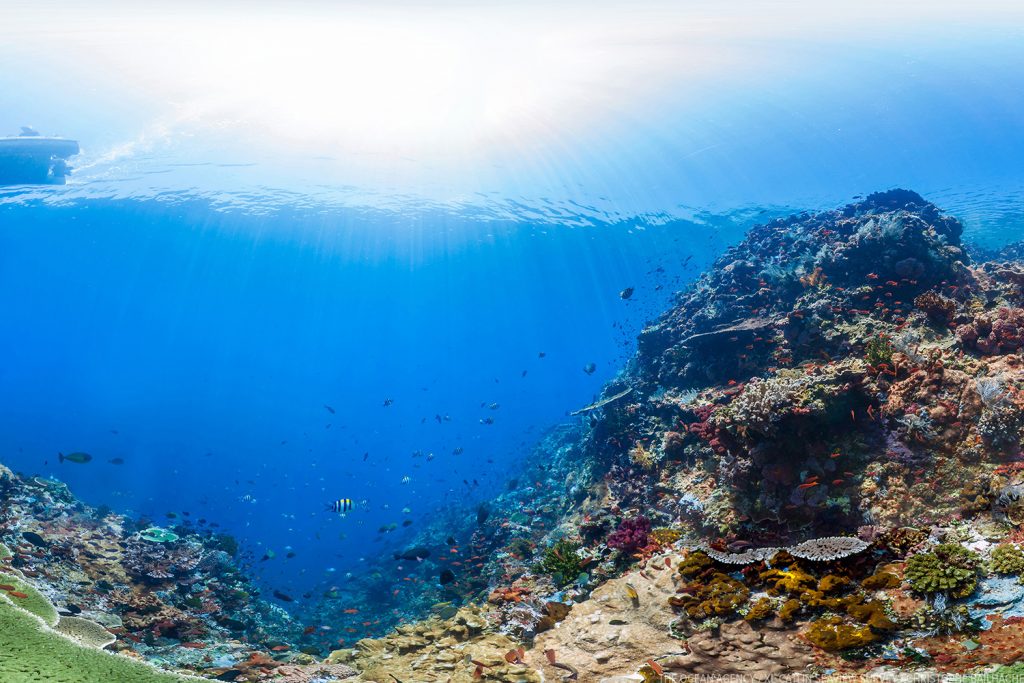World Oceans Day 2018: Lessons Learned in the Fight to Save A Critical Resource

By Antha Williams, Head of Environment Programs, Bloomberg Philanthropies
Today is World Oceans Day – a time to raise awareness and encourage action to protect our critical global resources. At Bloomberg Philanthropies, we work to ensure better, longer lives for the greatest number of people, and that mission is the bedrock of our oceans program.
Fish is the main source of animal protein – healthier and more affordable than beef, chicken, or pork – for more than one billion people around the world. Unfortunately this vital food source is threatened by overfishing and destructive fishing practices. While the supply of fish is decreasing, demand continually increases—with the world’s population expected to grow by two billion people within the next two decades. Without proper management of our oceans, we will continue to destroy coral reefs and marine ecosystems, and jeopardize a critical global food source.
In 2014 we launched a partnership with Oceana, Rare and Encourage Capital to take on that challenge. We’re working in top fishing countries to increase regulation of industrial fishing, promote sustainable small-scale fishery management practices, and create market incentives for regional governments to take advantage of products from local fishermen.
We are celebrating this year’s World Oceans Day by reflecting and celebrating some of the recent wins we’ve achieved together with our partners.
- Thanks to advocacy from Oceana, the Philippines created a new marine protected area, the Philippine Rise, declaring 50,000 hectares as a strict protection zone and an additional 300,000 hectares as a Fisheries Management Area.
- Brazil published new management rules for the fisheries, subjecting industrial and local fisherman to scientific management, stock assessments and catch limits.
- Data from Rare’s sites in the Philippines are already showing that our work in near-shore fishing communities has helped local fish populations rebound by 390% on average.
Despite all this progress, there’s still more to do to protect the ocean and the lives of those that depend on it. We’ve picked up several important lessons in our work to date which we’re incorporating into our strategy going forward:
-
Good data and science are fundamental:
Limits on the number of fish that can be caught are set too high in many places or do not exist at all, diminishing fish stocks and not allowing fish to repopulate. The good news is that marine ecosystems can rebound relatively quickly if caught in time. The factors that led to mismanagement must be addressed now in order to replenish fish populations and to help meet the dietary needs of a growing global population.
-
A targeted local approach:
We’ve found that empowering advocates in local communities to push for changes to national policy is a great way to achieve the best outcomes.
-
Connecting environment and public health:
Both the general public and key decision-makers often don’t see a link between protecting oceans and protecting the main source of protein for one billion people. We’re not just talking about the oceans’ beauty, but about the importance of fish for food. Going forward, this will be a fundamental part of our campaign’s messaging.
-
A broader impact:
We’ve realized an ability to scale some of our more successful campaigns by connecting local leaders in networks to spread proven solutions. By empowering local leaders through shared resources, we’re creating stronger management across more communities.
At Bloomberg Philanthropies, we firmly believe that collective action at both the local and national levels will be critical to protect our oceans. We must work together to ensure fish remain a dependable source of food and livelihood for future generations.